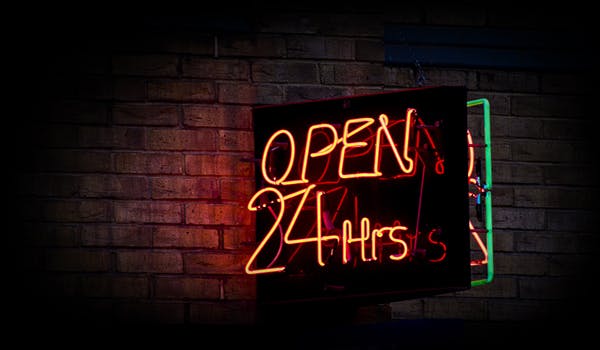Once upon a time, the ‘open 24 hour a day, 7 days a week’ business model was reserved for big city convenience stores, petrol stations, and not much else.
However, the ‘open 24/7’ concept is being adapted and utilized by savvy operators who recognise changes in societal expectations and lifestyle, as well as the opportunities created by better technology.
From pharmacies to supermarkets, even dry-cleaners; the 9 – 5pm model is under threat.
One example of a business successfully capitalising on this trend is Anytime Fitness.
Brother and sister team Justin McDonell and Jacinta McDonell Jimenez bought the franchise rights to launch the US brand in Australia in 2008 – five years on, the team say the model has fitted in well with the Australian lifestyle.
“It’s fitting into people’s lifestyles as they’re busier, and giving them the ability to train anytime is quite important,” McDonell told Dynamic Business.
The clubs work by allowing members to exercise anytime of the day or night using their own security-access keycard.
McDonell said that once the access control technology became available, the technology really enabled the model to work.
“When members join the club they get given an access card, there’s a card-reader on the door and once the member swipe the key it registers whether that person’s membership is valid, then it will enable access to the door. There’s also cameras throughout the club monitoring pretty much what’s going on inside the club,” he said.
While there are staff on site during the busiest times to look after members and assist in selling memberships, there is no reception desk, and most members pay on a direct debit billing system, which is linked to their door access.
“It’s all integrated and seamless from a member’s point of view. If their payments don’t go through, obviously it stops their door access as well,” McDonell said.
Interestingly the access card will also work at any club worldwide, allowing members to to be unrestricted by their usual place of residence.
From an energy point of view, McDonell said that 90% of members train from roughly 5am until 11:00pm – while the lights are on 24 hours a day, air conditioning and work-out machines power down during those low traffic hours.
“We figure we’re paying rent 24 hours a day, so we may as well have our doors open. Obviously the technology has enabled us to have fewer staff, so in Australia that’s probably one of the largest costs to business. That’s really lowered that staffing component,” McDonell said.

